Japanese Tattoo
Japanese tattoos, or Irezumi, are a revered form of body art that combines intricate designs, bold imagery, and deep symbolism. With roots that stretch back centuries, these tattoos are not just decorative but also carry profound meanings and tell stories rich in cultural significance. Whether you are drawn to the aesthetic beauty or the cultural heritage, Japanese tattoos offer a unique and powerful means of self-expression.
What Are Japanese Tattoos?
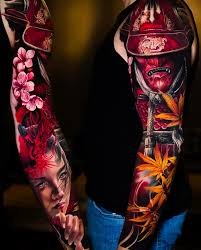
History and Cultural Significance of Japanese Tattoos
Japanese tattoos have a rich and complex history, deeply intertwined with the country’s cultural and social evolution. Irezumi dates back to the Jomon period (10,000 BCE to 300 BCE), where tattoos were believed to have spiritual and protective properties. Over the centuries, the practice evolved, particularly during the Edo period (1603-1868), when tattoos became popular among the working class, including firemen and laborers, as symbols of strength, loyalty, and bravery.
However, tattoos also faced periods of stigmatization, particularly during the Meiji era (1868-1912), when they were associated with criminality and the Yakuza, Japan’s organized crime syndicate. Despite this, the art of Irezumi persisted and is now celebrated worldwide for its beauty, complexity, and cultural depth.
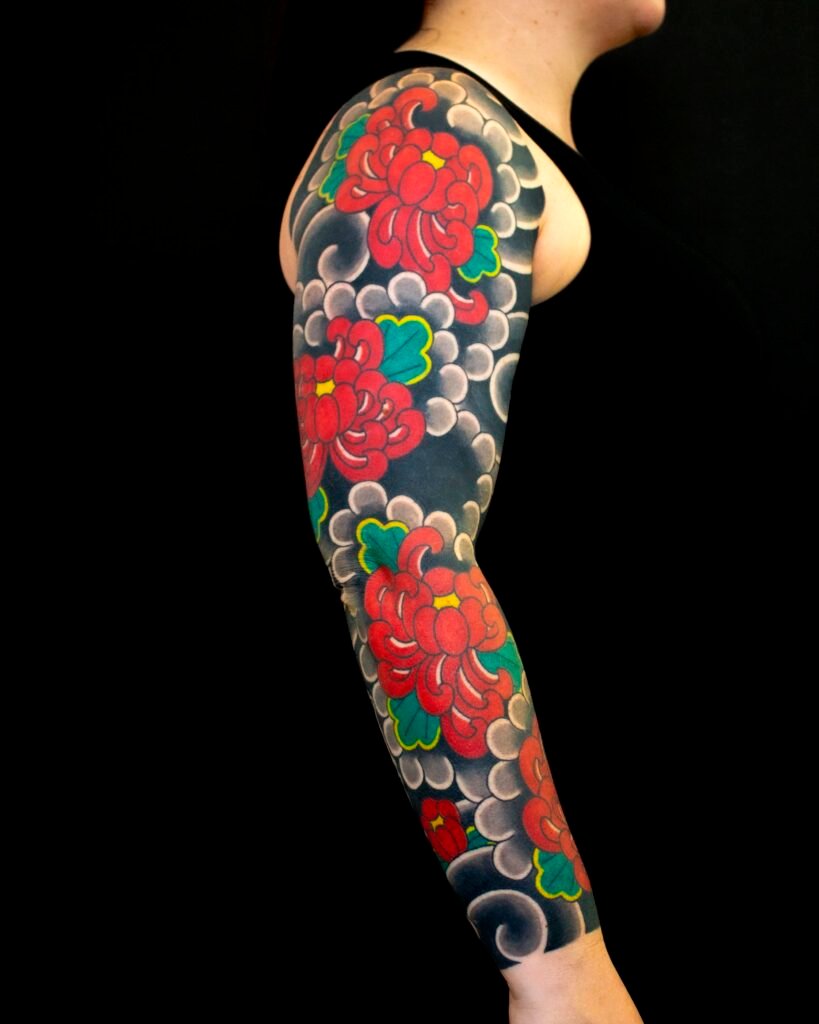
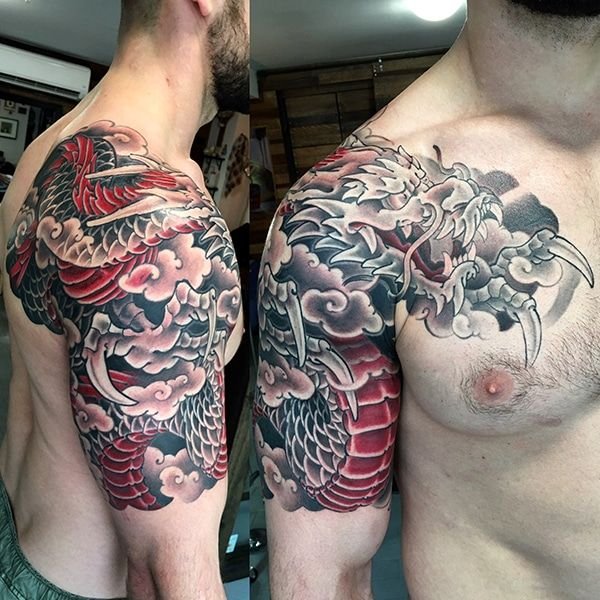
Dragons
In Japanese culture, dragons are revered as powerful, benevolent creatures that symbolize wisdom, strength, and protection. Unlike their Western counterparts, Japanese dragons are often depicted as water deities, embodying the forces of nature.
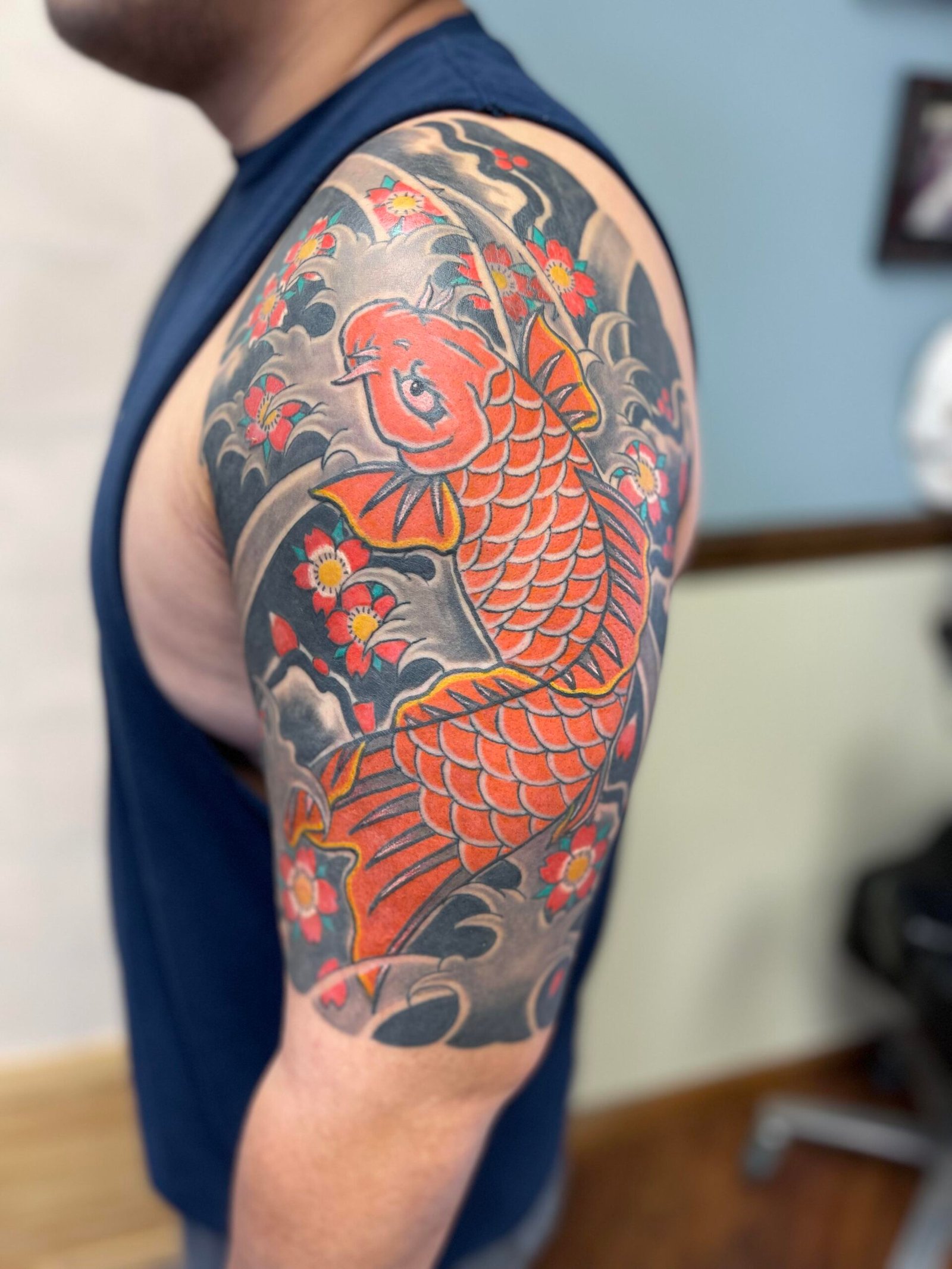
Koi Fish
Koi fish are a central motif in Japanese tattoos, representing perseverance, courage, and determination. The story of koi swimming upstream and transforming into dragons is a powerful metaphor for overcoming adversity and achieving greatness.
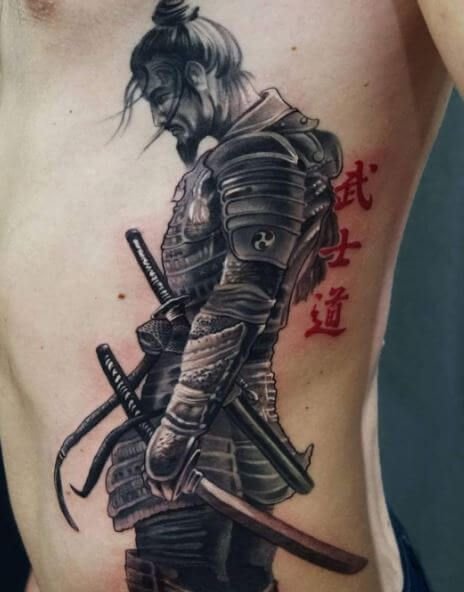
Samurai
Samurai tattoos embody the Bushido code of honor, loyalty, and discipline. These designs often depict the samurai in battle or in a state of readiness, symbolizing the wearer’s commitment to these timeless virtues.
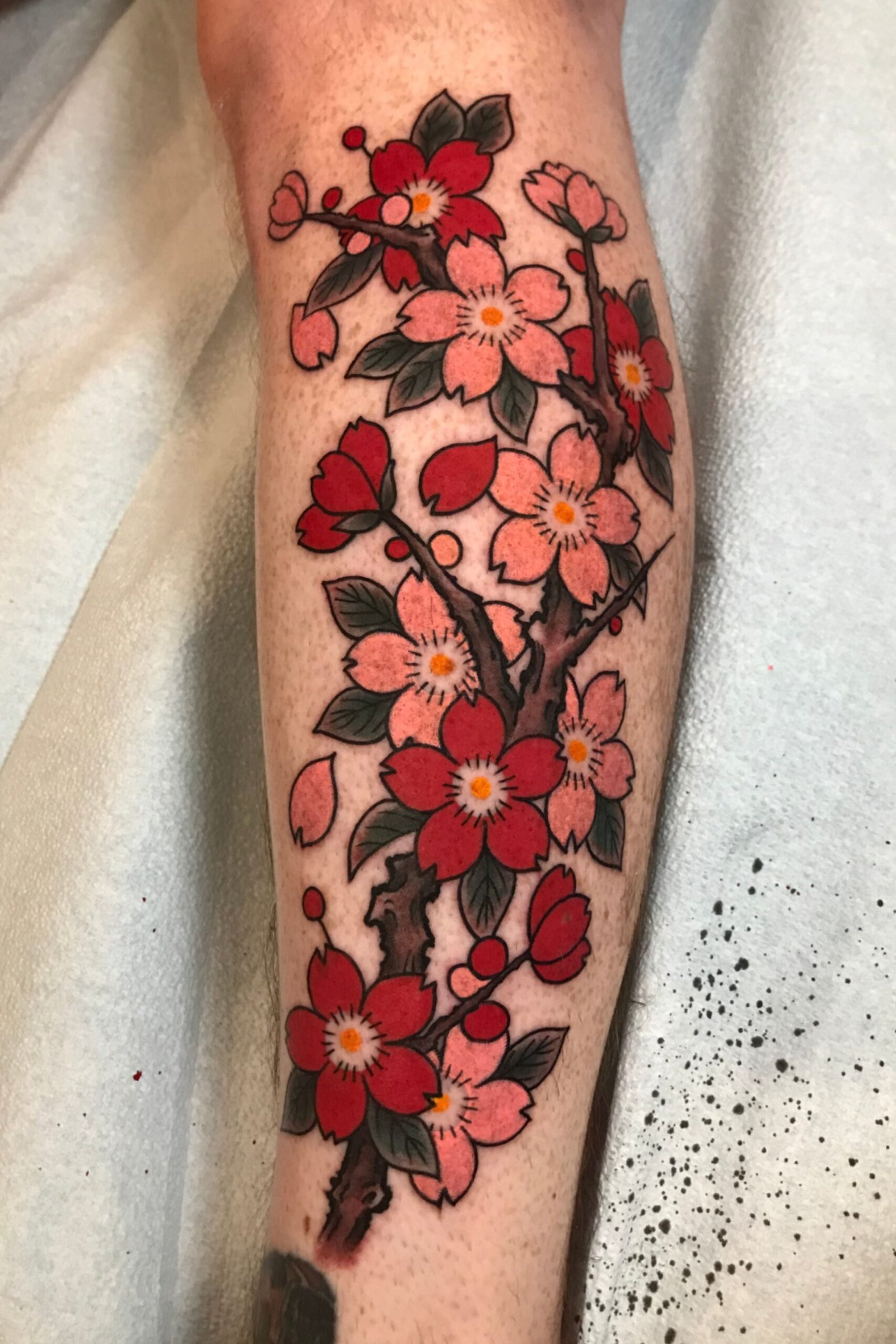
Cherry Blossoms (Sakura)
Cherry blossoms are a symbol of the fleeting nature of life, representing beauty in transience. These delicate flowers are often used in tattoos to remind the wearer of the importance of living fully and appreciating the present moment.
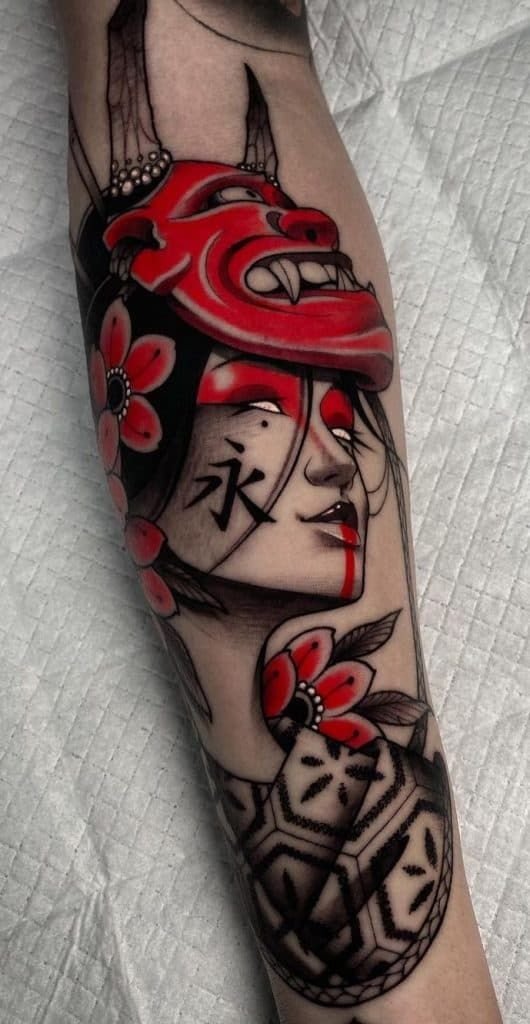
Hannya Mask
The Hannya mask represents a vengeful female spirit, often symbolizing intense emotions such as jealousy, rage, and sorrow. In tattoos, the Hannya mask is used to convey the complexities of the human psyche and the duality of emotions.
Why Choose The City Tattoo for Japanese Tattoos?
Japanese tattoos require a profound understanding of traditional techniques, cultural symbolism, and artistic precision. Here’s why The City Tattoo is the premier choice for those seeking authentic Japanese tattoos:
Mastery of Traditional Techniques
Our artists are highly skilled in the art of Irezumi, with extensive training in both traditional and modern Japanese tattooing methods. They bring a deep respect for the cultural origins of Japanese tattoos, ensuring that each piece is executed with accuracy and reverence.
Expert Artists Specializing in Japanese Tattoos
The City Tattoo is home to some of NYC’s most talented Japanese tattoo artists. Each artist has a rich portfolio that showcases their ability to create intricate, large-scale designs that are both culturally significant and visually stunning.
Custom Japanese Tattoo Designs
At The City Tattoo, we believe that every tattoo should tell a story that is unique to the wearer. Our artists work closely with clients to design custom Japanese tattoos that blend traditional elements with personal symbolism, creating a piece of art that is both meaningful and beautiful.
Focus on Cultural Integrity
We take pride in maintaining the cultural integrity of Japanese tattoos. Our artists are well-versed in the historical and symbolic meanings behind each design, ensuring that your tattoo is not only artistically beautiful but also culturally appropriate.
Hear From Our Satisfied Clients
We’re proud to have a long list of satisfied clients who’ve trusted us with their body art. Here’s what some of them have to say:
